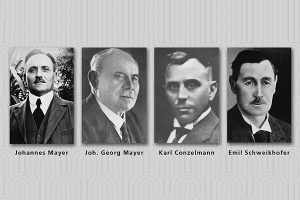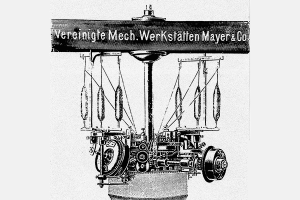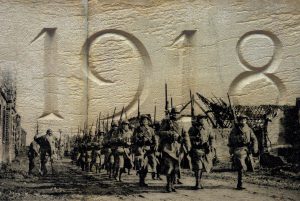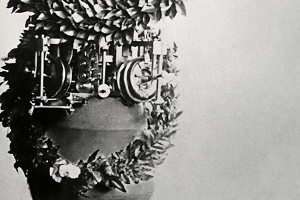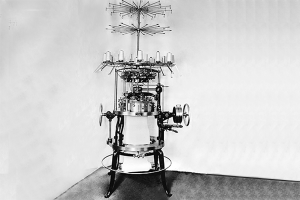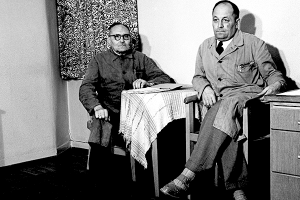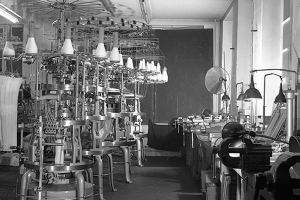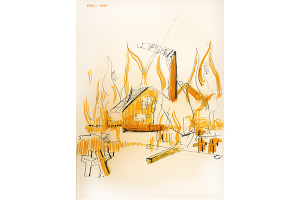1905 to 1939
From the imperial period to the second World War
In the first half of the 19th century, Johannes Maute brought the first circular loop wheel machines to Ebingen. With him began the production of hose-like work, of tubular warp-knitted fabric.
With governmental support, modern, affordable machines were now available. The French designers Honoré Frédéric Fouquet and Charles Terrot had set up factories in Württemberg at the instigation of the ‘Central Office for Trade and Trade’, in which circular loop wheel machines were produced.
“Jersey weavers often ‘drilled’ 18 hours a day. With iron diligence and rigorous thrift, capital could be earned for new investments. The fact that it took until the 1880s before the first steam engine for a mechanical jersey factory could be installed shows how arduous the ascent to the jersey industry was. But then a boom set in. In 1890, Tailfingen counted only one factory among 124 jersey-making shops, so by the end of the century there were 10 and in 1913 already 25 jersey factories.” (From “Menschen, Maschen und Maschinen“, Stadt Albstadt (Publisher), edited by Susanne Goebel, 1996)
1905
Foundation
On July 8th, 1905 the “Vereinigte Mechanische Wekrstätten Mayer & Cie.” were founded by Johann Georg Conzelmann, his two sons Karl and Jakob, Jakob Schmid, Johann Georg and Johannes Mayer, Emil Schweikhofer and Johannes Neher.
The company deals with the repair of circular loop wheel machines, distribution and repair of sewing machines, bicycles and drives of machines.

